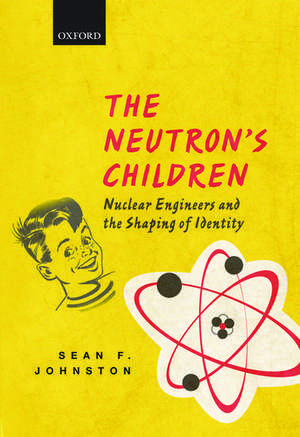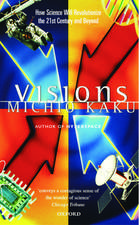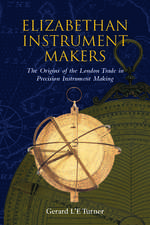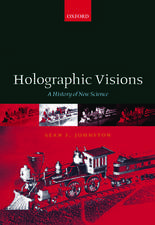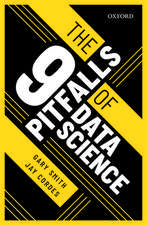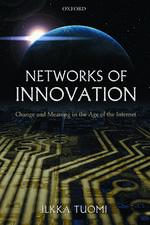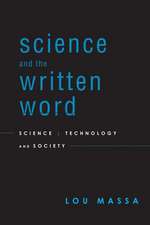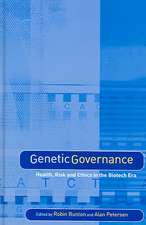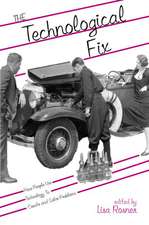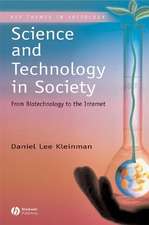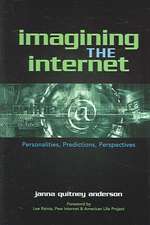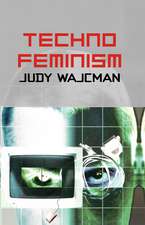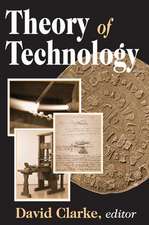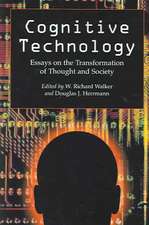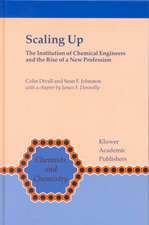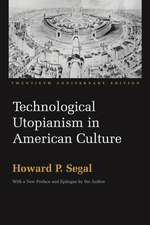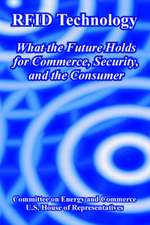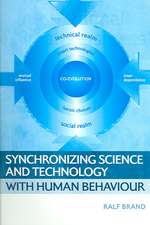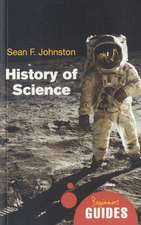The Neutron's Children: Nuclear Engineers and the Shaping of Identity
Autor Sean F. Johnstonen Limba Engleză Hardback – 26 apr 2012
Preț: 479.35 lei
Preț vechi: 658.06 lei
-27% Nou
Puncte Express: 719
Preț estimativ în valută:
91.72€ • 96.28$ • 76.13£
91.72€ • 96.28$ • 76.13£
Carte tipărită la comandă
Livrare economică 31 martie-05 aprilie
Preluare comenzi: 021 569.72.76
Specificații
ISBN-13: 9780199692118
ISBN-10: 0199692114
Pagini: 326
Ilustrații: 7 b&w line drawings, 20 b&w halftones
Dimensiuni: 173 x 248 x 23 mm
Greutate: 0.8 kg
Editura: OUP OXFORD
Colecția OUP Oxford
Locul publicării:Oxford, United Kingdom
ISBN-10: 0199692114
Pagini: 326
Ilustrații: 7 b&w line drawings, 20 b&w halftones
Dimensiuni: 173 x 248 x 23 mm
Greutate: 0.8 kg
Editura: OUP OXFORD
Colecția OUP Oxford
Locul publicării:Oxford, United Kingdom
Recenzii
The Neutron's Children is a piece of high quality research and scholarship which should be read by all those involved in the teaching and practice of nuclear engineering.
In this fascinating and well-researched volume....the author capably weaves together a great variety of material
The focus on working engineers rather than either scientists or managers distinguishes Johnson's account from the small library of books on the history of the atomic bomb and nuclear power. ... The Neutron's Children wil undoubtedly be the standard work on the professionalization of nuclear engineers for some time to come.
The Neutron's Children is a welcome addition for specialists in the history of nuclear technology, as well as for anyone interested in postwar nuclear history.
This is a masterful, very recommendable study on the building of nuclear expertise - not only since the catastrophes of Chernobyl and Fukushima a topic of prime importance to scientists and technologists, professionals, politicians, and in fact to all of us. Historiographically Johnston combines social and cultural history with labour and political history, successfully weaving in insights from science and technology studies and from a practice-oriented history of science and technology. His book will become a classic for all of these fields.
I enthusiastically recommend this fascinating study of nuclear engineering, which documents its development from its diverse origins in secret laboratories in the United States, Britain, and Canada during the Second World War, through its vital transformation in the international political arena during the first postwar decade, and culminates later in its maturation as a discipline through the commercialization of nuclear power, each stage of which entailed profound scientific, technical, institutional, educational, and sociopolitical consequences that affect our lives today.
A fascinating account of how an entire industry developed from very sparse beginnings and, like all good histories, it offers lessons to be learned.
In this fascinating and well-researched volume....the author capably weaves together a great variety of material
The focus on working engineers rather than either scientists or managers distinguishes Johnson's account from the small library of books on the history of the atomic bomb and nuclear power. ... The Neutron's Children wil undoubtedly be the standard work on the professionalization of nuclear engineers for some time to come.
The Neutron's Children is a welcome addition for specialists in the history of nuclear technology, as well as for anyone interested in postwar nuclear history.
This is a masterful, very recommendable study on the building of nuclear expertise - not only since the catastrophes of Chernobyl and Fukushima a topic of prime importance to scientists and technologists, professionals, politicians, and in fact to all of us. Historiographically Johnston combines social and cultural history with labour and political history, successfully weaving in insights from science and technology studies and from a practice-oriented history of science and technology. His book will become a classic for all of these fields.
I enthusiastically recommend this fascinating study of nuclear engineering, which documents its development from its diverse origins in secret laboratories in the United States, Britain, and Canada during the Second World War, through its vital transformation in the international political arena during the first postwar decade, and culminates later in its maturation as a discipline through the commercialization of nuclear power, each stage of which entailed profound scientific, technical, institutional, educational, and sociopolitical consequences that affect our lives today.
A fascinating account of how an entire industry developed from very sparse beginnings and, like all good histories, it offers lessons to be learned.
Notă biografică
Sean F. Johnston is Professor of Science, Technology and Society at the University of Glasgow, a Fellow of the Higher Education Academy and a Chartered Physicist (Institute of Physics). He has worked as a scientist, researcher and development manager at North American and British firms and at the University of Leeds, and as an historian at the Universities of York and Glasgow. Johnston is a recipient of the Paul Bunge Prize of the Hans R. Jenemann Foundation, administered by the Gesellschaft Deutscher Chemiker, for the history of scientific instruments and of the George E. Davis Medal of the Institution of Chemical Engineers, for a history of chemical engineering co-written with Colin Divall, and has been International Scholar of the Society for the History of Technology. He lives in southern Scotland, where he teaches and researches the historical, social and philosophical aspects of science and technology.
